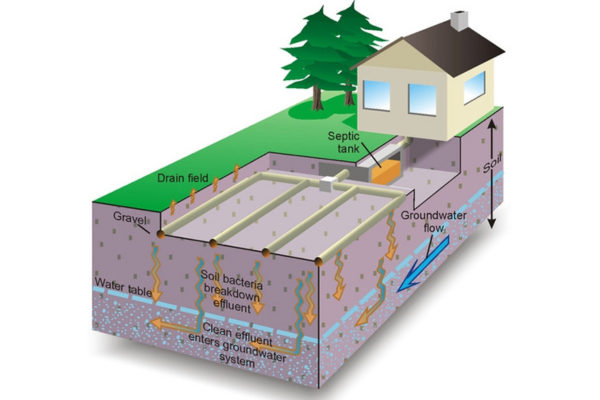August 6, 2024

Often times rural properties are, well — rural. Given the off-the-grid locale of some rural properties, they may not be in a proximity to connect to centralized sewer systems. This means the property has (or will need) its own septic system to treat wastewater. So what is a septic system, how does it work and more importantly, what are the signs it’s malfunctioning? Read on to learn more.
What is a Septic System?
A septic system uses a combination of natural processes and technology to treat wastewater from bathrooms, kitchens, and laundries. A typical conventional septic system consists of:
- A septic tank (usually concrete, fiberglass, or polyethylene) with two chambers where solids settle as sludge and oils/grease float as scum
- A drain or leach field with perforated pipes and gravel that disperses the liquid effluent into the soil
How does a septic system work?
Wastewater flows by gravity from the home into the first septic tank chamber. Solids settle to form a sludge; oils and grease float to the top to form a scrum; and microbes break down waste.
Further settling takes place in a second chamber and the remaining liquid wastewater (known as effluent), is then discharged through perforated pipes into the leach field. Further biological breakdown occurs as effluent leaches through the soil.
What are signs of a malfunctioning septic system?
- Wastewater backing up into drains
- Spongy, bright green grass on the leach field, especially during dry weather
- Pooling water or muddy soil around the system or in your basement
- Strong odors around the tank and leach field
If you notice any of the above signs, reduce water usage as much as possible and call a septic service professional who can properly diagnose the issue as soon as possible.
As with any rural property, there are unique considerations as you plan your purchase and move into your new home. The mortgage specialists at Country Living Loans from Farm Credit East specialize in the intricacies of rural properties and look forward to guiding you in the purchase of your dream property. Contact a local mortgage specialist today to learn more.
Contact A Country Living Loans Specialist Today





